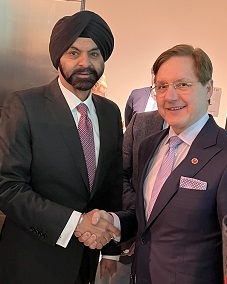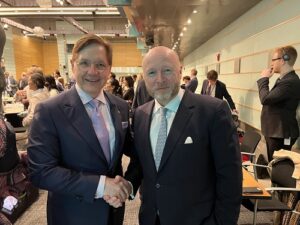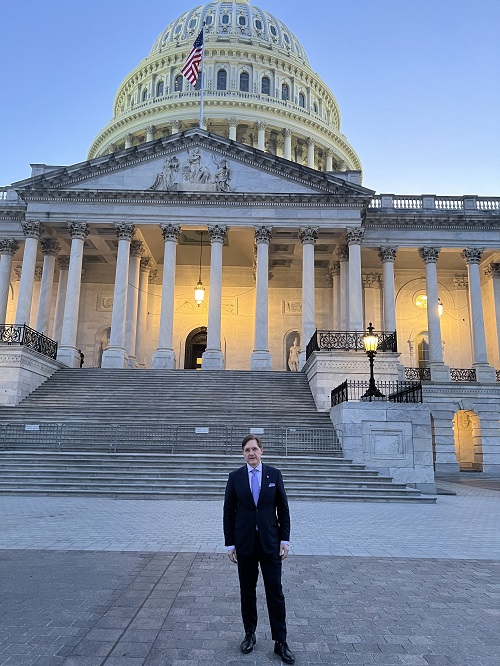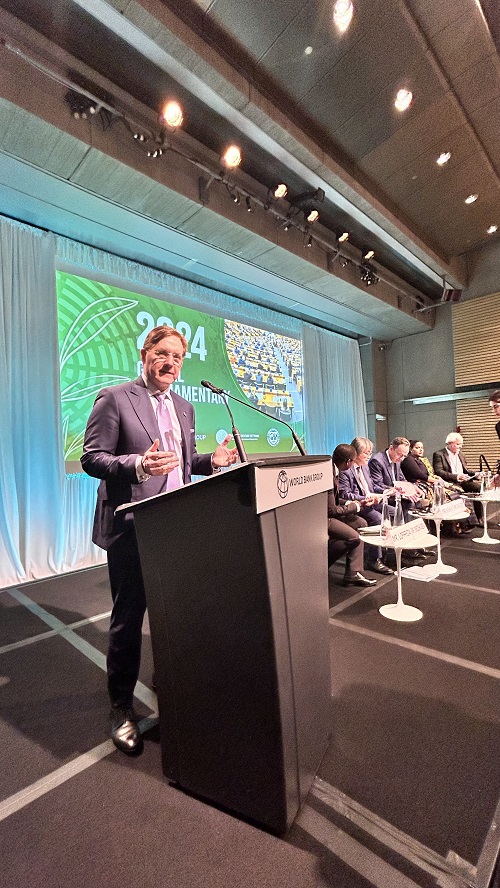A Global Approach to Fighting Poverty: How Canada Can Lead the Charge
The following article by Senator Loffreda focuses on his most recent visit to Washington to attend the Global Parliamentary Forum organized by the Parliamentary Network on the World Bank and the IMF.
Every April, finance ministers, central bank governors, development experts, private sector executives, civil society representatives, parliamentarians and academics gather in Washington for the annual Spring Meetings of the World Bank and the International Monetary Fund. On the margins of this annual meeting is the Global Parliamentary Forum, hosted by the Parliamentary Network on the World Bank and IMF, which serves as a neutral platform for parliamentarians from member countries to enhance both accountability and transparency within development cooperation.
As the Chair of the Parliamentary Network’s Canadian chapter, I had the privilege of traveling to Washington earlier this month to attend the two-day Forum and join hundreds of parliamentary colleagues from around the world, including my Canadian colleague Senator Rosa Galvez, a climate change expert.
Some of the important global issues we addressed during our meetings included properly regulating the risks and opportunities of artificial intelligence through a global lens, accelerating climate solutions in a fragile world, and leveraging gender strategies to advance gender equality.
At the request of the Network’s chair, Liam Byrne, a British Member of Parliament, I had the honour of moderating a panel entitled “Debt and Growth: Investing in the International Development Association (IDA) and the Poverty Reduction and Growth Trust.” We had a stellar lineup of speakers from both civil society and international legislatures, including the Speaker of the Senate of Burundi.
As the representative of a country that benefits from the IDA, the Speaker spoke highly of the Association and the need for global partners to increase investments and funding opportunities for lower-income countries so they may continue to invest in their future, improve the lives of their citizens, and create more prosperous communities in their respective nations.
Our panel generated much interest from the audience. Like Burundi, legislators from other African countries also urged wealthy countries to increase its international aid commitments. The IDA, thanks to its concessional loans and grants and its debt relief initiatives, is widely considered as the single largest source of donor funds for basic social services in many countries.
In fact, since its creation in 1960, the IDA has provided $533 billion to 115 countries. More recently, annual commitments have increased steadily to about $36 billion a year. If you want proof that the Association is accomplishing its objectives, look no further than the IDA’s so-called graduation list. Three dozen countries, who have historically benefited from the IDA, are no longer eligible because they have either successfully reduced its poverty rate, improved its ability to borrow credit, or are better equipped to manage its financial ressources.
During our panel, it was inspiring to hear how the money from international donor countries like Canada is contributing to alleviating poverty around the world. We heard, loud and clear, the call to action to further expand our commitments to help encourage economic growth and build resilience in some of the world’s most vulnerable countries. Today, a total of 75 countries are eligible to receive IDA resources.
Canada, as a wealthy nation and industrialized economy, is in a privileged position. The situation may not be perfect at home, but we are also uniquely positioned to invest in the prosperity of lower-income countries. It’s the right and decent thing to do.
Just last week, in its spring budget, the federal government reiterated its commitment to making more money available to developing countries so that they can make the critical investments they need to support their people. In fact, in late 2023, Canada generously committed an additional $1.3 billion to the IMF’s Poverty Reduction and Growth Trust special drawing rights reserve.
I also think Canada has more to offer. Beyond foreign aid, loans and grants, Canadian entrepreneurs have the experience and know-how to help grow the economy of communities around the world and raise the standards of living for the most vulnerable and marginalized in our society.
I’ve always said that wealth is created by the entrepreneur. Canada must be more proactive in exporting our Canadian experts, entrepreneurs, and professionals to help local entrepreneurs acquire the necessary tools to start a business, create local jobs, and generate wealth and prosperity at the community level. Would-be entrepreneurs in developing countries and remote places need incentives, certainty, and resources to thrive. Canadian expertise is one such resource that could go a long way in alleviating poverty in some of the most troubled corners of the world.
Being in Washington last week reminded me of the impact and influence Canada continues to have in helping reduce poverty around the world. We are viewed as a generous country with its heart on its sleeve, whose contributions, both in terms of dollars and goods and services, are needed more than ever, and truly appreciated.
The Honourable Tony Loffreda, Independent Canadian Senator (Québec)
In the photos: the Honorable Loffreda in Washington, with Lyam Byrne (President of the Parliamentary Network) and Ajay Banga (President of the World Bank Group), and during his speech







